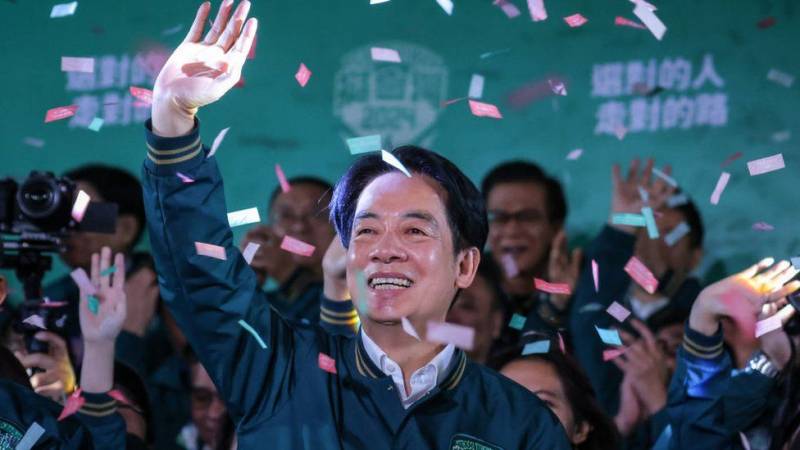
William Lai Ching-te, the incumbent vice president from the Democratic Progressive Party (DPP) has won Taiwan’s presidential election. The election was marked by repeated warnings from China not to vote for Lai Ching-te, branding him as a dangerous separatist.
Lai Ching-te’s opponents in the election were Hou Yu-ih from the Kuomintang Party (KMT) and former mayor of Taipei Ko Wen-je from the Taiwan People’s Party (TPP).
With the votes counted, Lai won 40.1% of the vote, ahead of Hou’s 33.5% and Ko’s 26.4%. Both Hou and Kon publicly conceded defeat.
Beijing responded sternly to news of Lai’s victory, with Beijing’s Taiwan Affairs Office spokesperson Chen Binhua saying in a statement that “Taiwan is China’s Taiwan.” The statement claimed China’s commitment to “national reunification remains consistent, and our determination is as firm as a rock.”
The election carries global significance owing to the territory’s disputed political status. While a self-governing territory, Taiwan is still claimed by China and the territory remains critical as a flashpoint for possible conflict, as China has never ruled out the use of force to reunify.
“The election has shown the world the commitment of the Taiwanese people to democracy, which I hope China can understand,” said Lai in his victory address. “We are telling the international community that between democracy and authoritarianism, we still stand on the side of democracy,” he said.
Lai also said that he was “determined to safeguard Taiwan from threats and intimidation from China".
Lai’s running mate Hsiao Bi-khim, who served as Taiwan’s top diplomat in the United States, was elected Vice Preisdent.
“Unification is inevitable”
In a recent address, Chinese President Xi Jinping said that the “reunification of Taiwan with China was inevitable.” China has also intensified military pressure on Taiwan, keeping fears of a possible invasion alive.
The DPP has been in power over the past eight years, and has had to manage a tricky relationship with China.
In response to the news of Lai’s victory, American President Joe Biden said that Washington does not support the independence of Taiwan. It is expected that Washington will nonetheless uphold its longstanding policy of supporting Taiwan.
The Taiwan strait is a major flashpoint for geopolitical conflict, and China could escalate economic and military pressure on Taiwan to show its displeasure with Lai’s presidency.
